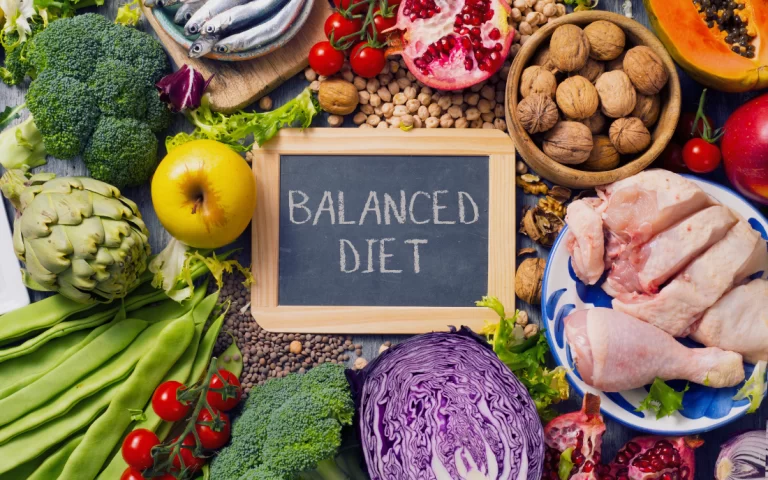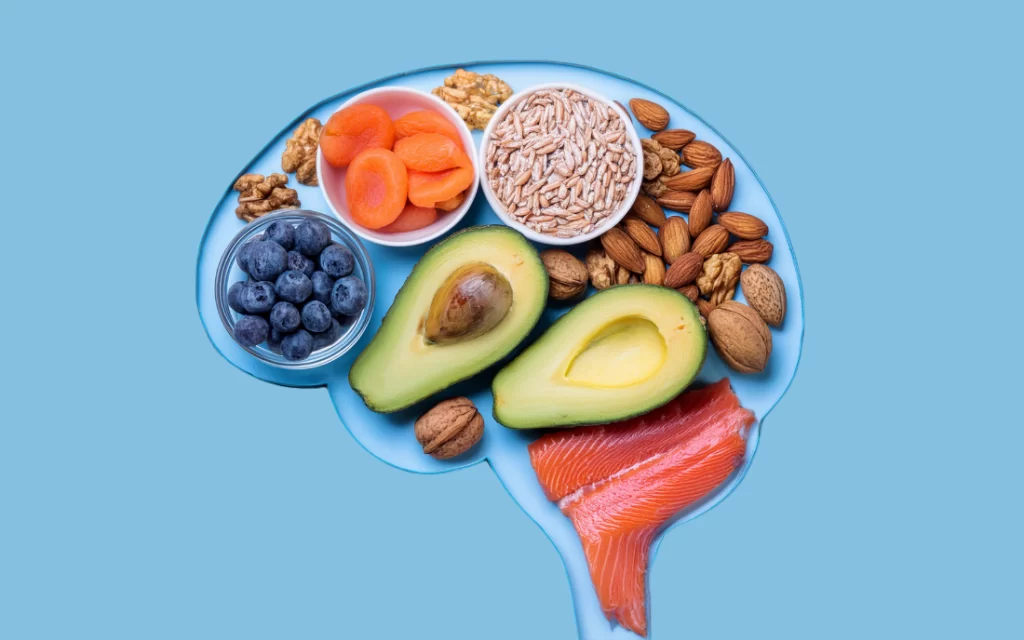We often hear the phrase “you are what you eat,” but what if that applied not just to your physical health—but your mental health too? Research increasingly confirms that nutrition plays a crucial role in mental well-being, influencing everything from mood and cognition to anxiety and depression. While therapy, medications, and lifestyle habits like exercise are vital components of mental health care, the foods we eat or don’t eat can significantly impact how we feel, think, and function.
In this blog, we’ll explore how nutrition affects mental health, what nutrients are most important for brain function, and how to make mindful dietary choices to support emotional and psychological well-being.
Why Nutrition Matters for Mental Health
The brain, like every other organ in your body, requires fuel to function. But not just any fuel—your brain is highly sensitive to what you consume. Poor nutrition can impair cognitive processes and emotional regulation, while a balanced, nutrient-rich diet can promote resilience, clarity, and a more stable mood.
Here’s how your diet influences your mental health:
- Neurotransmitter Production – Mood-regulating chemicals like serotonin, dopamine, and norepinephrine are synthesized from amino acids and other nutrients found in food. For example, tryptophan (found in turkey, eggs, and dairy) is a precursor to serotonin, the “feel-good” neurotransmitter.
- Inflammation and Brain Health – Diets high in processed foods, sugar, and unhealthy fats can increase systemic inflammation—including in the brain—contributing to depression, anxiety, and even cognitive decline. Conversely, anti-inflammatory foods like fruits, vegetables, and omega-3s can help protect the brain.
- Gut-Brain Axis – The gut and brain are in constant communication through what’s known as the gut-brain axis. A healthy gut microbiome (supported by fiber-rich and fermented foods) helps regulate mood and mental health, while an imbalanced gut may increase the risk of anxiety and depression.
- Blood Sugar Regulation – Fluctuating blood sugar levels—caused by refined carbs and sugary foods—can lead to mood swings, fatigue, irritability, and trouble concentrating. Stable blood sugar, maintained through balanced meals, supports consistent energy and emotional balance.

Nutrients That Support Mental Health
Certain nutrients are particularly important for mental wellness. Deficiencies in these key vitamins and minerals have been linked to higher rates of mental health disorders:
- Omega-3 Fatty Acids – Found in: Fatty fish (salmon, mackerel, sardines), flaxseeds, chia seeds, walnuts
- Omega-3s are essential for brain structure and function. They support mood regulation and have been shown to reduce symptoms of depression and anxiety.
- B Vitamins (Especially B6, B9/Folate, B12) – Found in: Leafy greens, legumes, eggs, poultry, dairy
- B vitamins are crucial for energy production and neurotransmitter synthesis. A deficiency, particularly in folate or B12, has been associated with depression, brain fog, and fatigue.
- Magnesium – Found in: Nuts, seeds, whole grains, spinach, avocados
- Magnesium helps regulate the nervous system and calm stress responses. Low levels are linked to anxiety, irritability, and poor sleep.
- Vitamin D – Found in: Fatty fish, fortified foods, sunlight
- Known as the “sunshine vitamin,” vitamin D influences serotonin levels. Deficiency is common in colder climates and has been associated with seasonal affective disorder (SAD) and low mood.
- Zinc – Found in: Meat, shellfish, legumes, seeds
- Zinc plays a role in neuroplasticity and has anti-inflammatory properties. Low levels have been noted in individuals with depression.
- Iron – Found in: Red meat, lentils, spinach, tofu
- Iron deficiency can lead to fatigue and cognitive difficulties. It’s particularly important for growing children, menstruating women, and vegetarians.

Diet Patterns Linked to Better Mental Health
While individual nutrients are important, overall dietary patterns play an even greater role in mental health. Two eating styles have shown the most consistent mental health benefits:
- The Mediterranean Diet
- Emphasizes whole grains, fruits, vegetables, legumes, fish, olive oil, and nuts
- Rich in fiber, antioxidants, healthy fats, and lean protein
- Linked to lower rates of depression and cognitive decline
- The MIND Diet (a hybrid of Mediterranean and DASH diets)
- Focuses on brain-healthy foods like leafy greens, berries, nuts, and whole grains
- Limits processed foods, red meats, butter, and sugary snacks
- Associated with reduced risk of Alzheimer’s disease and age-related cognitive decline
What to Limit for Better Mental Health
Just as some foods help the brain thrive, others can be harmful when consumed in excess:
- Refined Sugars and Carbohydrates: Can lead to inflammation, energy crashes, and mood swings
- Processed Foods and Additives: Often low in nutrients and high in unhealthy fats, sodium, and artificial ingredients
- Excess Caffeine or Alcohol: Can disrupt sleep, increase anxiety, and affect mood regulation
Simple Ways to Eat for a Healthier Mind
You don’t need a complicated meal plan or expensive supplements to support your mental health through nutrition. Start with small, consistent changes:
- Eat the Rainbow: Incorporate a variety of colorful vegetables and fruits every day for diverse nutrients and antioxidants.
- Stay Hydrated: Dehydration can affect mood and cognitive performance. Aim for at least 6–8 cups of water daily.
- Choose Whole Foods: Prioritize fresh, unprocessed ingredients over packaged and fast food.
- Add Healthy Fats: Include sources of omega-3s like fish, walnuts, or flaxseeds several times a week.
- Plan Ahead: Preparing healthy meals and snacks in advance can prevent poor choices when you’re stressed or tired.
- Listen to Your Gut: Support gut health with fiber-rich foods, probiotics (like yogurt, kefir, kimchi), and prebiotics (onions, garlic, bananas).

When to Seek Professional Help
If you’re struggling with symptoms of depression, anxiety, or chronic stress, don’t hesitate to seek help from a mental health professional. At the same time, consider working with a registered dietitian or integrative health practitioner who understands the link between food and mood. Together, you can create a personalized plan that supports both your mind and body.
Conclusion: Feed Your Brain, Fuel Your Well-being
Mental health is complex and influenced by many factors—but nutrition is one of the most direct and empowering aspects within your control. The food choices you make every day have the power to either support your mental clarity, mood, and emotional resilience—or to hinder them.
By focusing on nutrient-dense, whole foods and limiting inflammatory ingredients, you can nourish not just your body, but also your brain. Whether you’re managing a mental health condition or simply looking to boost your mood and focus, let nutrition be one of your strongest allies.
After all, a healthy mind starts on your plate.
Elumind Centres for Brain Excellence is an integrated mental health center offering solutions that can help you with your mental/brain health needs. To start your journey, book your FREE 15-MINUTE PHONE CONSULTATION. We are here for you.
Written by: Dr. Kourosh Edalati








